Former Iran Hostage Starts Hunger Strike At Vienna Nuclear Talks
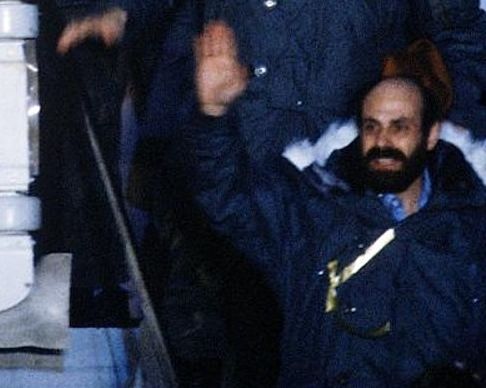
Barry Rosen, a survivor of the Iran Hostage Crisis, has started a hunger strike in Vienna where diplomats from Iran and world powers are negotiating to salvage the 2015 nuclear deal.

Barry Rosen, a survivor of the Iran Hostage Crisis, has started a hunger strike in Vienna where diplomats from Iran and world powers are negotiating to salvage the 2015 nuclear deal.
Rosen has expressed hope his move can stop other countries from reaching a deal with Iran until the hostages are released.
Another journalist and rights activist Jamshid Barzegar says he’s going to join Rosen’s sit-in in Vienna to draw attention to hostages and all political prisoners held by Tehran.
Barzegar said in a tweet that he is joining the hunger strike also to protest the Islamic Republic's “murder of poet Baktash Abtin,”who died of Covid-19 complications following days of medically induced coma after he was denied timely treatment by officials at Tehran’s notorious Evin prison.
The poet and writer was sentenced to six years in prison in May 2019 for his writings.
Since the 1979 revolution the Islamic Republic has arrested and jailed many foreigners on vague and trumped-up charges to use them as bargaining chips against Western countries.
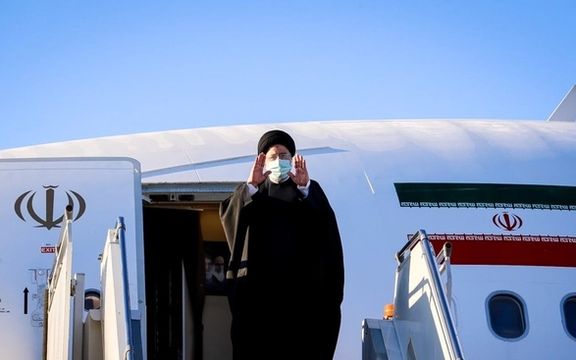
Iranian President Ebrahim Raisi has arrived in Russia for a two-day state visit upon an official invitation by President Vladimir Putin.
Before leaving Tehran for Moscow Wednesday morning, Raisi expressed hope that his visit could be a “turning point” in bilateral relations.
“Undoubtedly, we have good relations with all of our neighbors, particularly Russia, and considering the bilateral political, economic, and trade relations, this trip can be a turning point in our cooperation with Russia,” he said.
“The Iran-Russia collaboration in the region certainly creates security and will prevent unilateralism,” the Iranian president said.
Raisi is scheduled to hold a meeting with President Putin and deliver a speech at a plenary session of the Duma, the lower house of the Russian parliament during his trip.
Rejecting speculations that Raisi is going to Russia to ink the proposed 20-year agreement, Iran’s ambassador to Russia Kazem Jalali has said the two presidents may discuss and agree on different issues but signing deals is not on the agenda of the visit.
On Tuesday, the Russian Pacific Fleet announced it will take part in joint naval war games with Iran and China in without announcing the exact date and location for the drills.
Earlier in the week, Iran’s former ambassador to Russia said increasing banking cooperation between Tehran and Moscow can be used to circumvent United States’ sanctions.
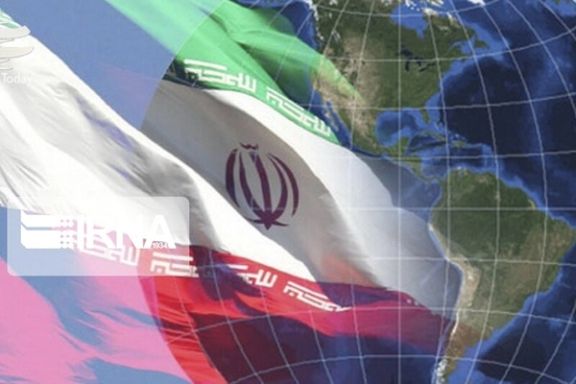
Hardliner officials and media in Tehran say a new power triangle consisting of Iran, Russia and China has formed against the United States in the world.
"In the new world order, a triangle consisting of three powers – Iran, Russia, and China – has formed in Asia. This new arrangement heralds the end of the inequitable hegemony of the United States and the West," Mahmoud Abbaszadeh-Meshkini, spokesman of the National Security and Foreign Policy Committee of the Iranian parliament, said Wednesday.
In his interview with the government news agency IRNA, published as President Ebrahim Raisi was preparing to leave Tehran for an official visit to Moscow, Abbaszadeh-Meshkini also claimed that the Raisi administration has succeeded in turning Tehran into "the center of political and diplomatic consultations and arrangements in the region, Asia, and the world."
Khamenei's advisor Ali-Akbar Velayati also claimed in a recent interview that Iran has turned into a world power equal to Russia and China.
Raisi's visit to Moscow is taking place in an atmosphere of heightened public debateover Iran's now official policy of aligning with Russia and China against the West despite the once promoted "Neither East, Nor West" slogan of the founder of the Islamic Republic, Ayatollah Ruhollah Khomeini. The slogan has been inscribed over the entrance of the foreign ministry building in central Tehran.
Hardliners claim that closer economic and political relations with the East and Asian countries, which Iran's Supreme Leader Ali Khamenei has promulgated with the catchphrase "Looking East", will help Iran's development and strengthen it against Western powers, particularly the United States. Since 2018, and Khamenei's advocation of the policy, "Looking East" has become one of the centerpieces of a 'revolutionary economy' which hardliners have been hard at work to theorize and promote.
Hardliners accuse the former moderate president, Hassan Rouhani, and his reformist allies of sacrificing the potentials of expansion of relations with the East, Russia in particular, during the eight years of his presidency in favor of relations with Europe and the US.
In a note entitled "Expansion of Foundations of National Interests" Wednesday, Javan newspaper which is affiliated to the Revolutionary Guards (IRGC) alleged that Rouhani knowingly sabotaged relations with Moscow, cold-shouldered some of Putin's initiatives, and that his government never acted on the 15 cooperation agreements signed during his visit to Moscow in 2017.
"[President] Ebrahim Raisi's visit to Russia … can once again draw Tehran-Moscow relations out of a state of suspension and endow it with a strategic quality," Javan said of the importance of Raisi's visit.
Insisting that the Pentagon and liberals at home are worried about the visit, Javan added that "political conjunction with Russia and China" will elevate relations with the two Eastern powers from "seasonal and occasional" to a strategic level. "These developments in the Tehran-Beijing-Moscow axis will fundamentally change security arrangements in the region," Javan wrote.
In another article Wednesday, Javan said important economic agreements over a bilateral monetary arrangement to eliminate the need for going through the international banking system would be discussed with Russian officials.
Javan claimed that Raisi's visit, a few days after Foreign Minister Hossein Amir-Abdollahian's visit to Beijing, has born "tangible results in economic, political and social arenas" in the past few months and predicted that stronger relations with Russia will bear significant results in the process of the Vienna nuclear talks to restore the 2015 nuclear agreement with world powers and in neutralizing US sanctions.
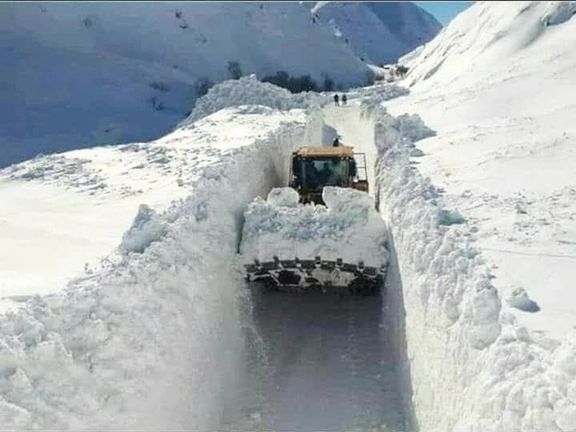
Heavy rain and snow after months of drought have led to floods across Iran in the past week, causing deaths and damage to thousands of properties and roads.
According to reports, the southern regions of the country -- in Sistan-Baluchistan, Kerman, Fars and Hormozgan provinces -- are the worst hit by heavy rains, with higher number of casualties and villages that are left without power and surrounded with water.
Heavy snow, unprecedented in recent years, have chocked off mountain passes. Some areas are blanketed with six feet of snow.
Local authorities said on Wednesday that four people, including three children, were killed in floods in Kerman and Hormozgan provinces, dozens of villages were evacuated and access to more than 300 other villages was cut off.
There is no exact number for the casualties as many people are still missing and communication systems are lost in many of the flood-stricken areas, while relief operations are slow and insufficient. ()
Kerman Governor Ali Zeinivand said at a meeting of the province's crisis management taskforce on Wednesday that the situation in many towns and villages was critical as they are besieged by water, and unless precipitation decreases, flooding cannot be controlled.
Officials from different ministries and organizations, including President Ebrahim Raisi and several military commanders, have been paying visits to the people who are living in temporary housings.

OPINION- While 2022 has just begun, the extent of human rights crimes against political prisoners by the Islamic regime in Iran is highly painful and bloody.
In January 2022, Adel Kianpoor died after a week of hunger strike in prison. Boxing champion Mohammad Javad Vafaei was sentenced to death. Mehdi Salehi, who was arrested after the mass protests of December 2017, had a stroke and went into a coma after being injected with an unknown substance in prison. Mohsen Ghasemi, a former World and Asia wrestling champion, died on January 14 after being in a coma for two years. Baktash Abtin, a poet, writer, and documentary filmmaker, died in hospital after contracting Covid in jail. Political prisoners Sadegh Omidi, Mehdi Darini, Hamid Kashani, Ali Asghar Hassani Rad, Mahmoud Ali Nejad, Peyman Pourdad, and Moin Hajizadeh have gone on a hunger strike in protest to the "premeditated murder" of Baktash Abtin and are in critical condition. Also, Dozens of political prisoners have been sent to exile to remote and non-standard prisons.
Unfortunately, despite all the efforts of the opposition and human rights activists, Iran’s prisons are still full of young men and women who dare to think differently than this brutal regime. There are prisoners who have been behind bars for 5, 10, 15, or even 22 years, in terrible conditions and without proper medical care. For the lucky ones who get a chance of conditional release, the Islamic Regime demands heavy bail. With these high figures, the opposition has gone bankrupt financially.
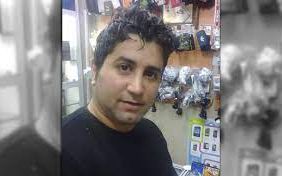
The Iranian people have been coming out to protest periodically and get shot dead on the streets, get arrested and put in jails, and receive unfair sentences for bogus accusations of "insulting the Prophet, insulting the Supreme Leader, or spreading propaganda against national security." One of the reasons that Iranians cannot get rid of this brutal regime is the support they receive from the West. Despite the far-right, xenophobic, racist, and sexist nature of the Islamic regime in Iran, the liberal progressive left in the West, especially in the United States, has welcomed them in the media, in the academia, in the sports arenas, and even as advisors in the White House. Many leading universities and mainstream media in the United States hire apologists and proxies of the Islamic Republic, people such as Farnaz Fassihi at New York Times, or former Tehran officials Hossein Mousavian at Princeton, and Mohammad Jafar Mahallati at Oberlin College, and allow them to whitewash the Islamic Republic’s record.
The former officials enjoying stature in America are not only dangerous ideologically, but they also have the blood of Iranians on their hands. Mousavian is implicated in Mykonos restaurant assassinations in Berlin, Germany, in 1992, where three Iranian-Kurdish opposition leaders and their translator were killed in cold blood. Mahallati is accused of crimes against humanity by Amnesty International for his role in the 1988 Massacre of political prisoners in Iran. Cozying up to former diplomats of the Islamic regime in the past 40 years not only has helped system to oppress its people and extend its reach in the region through its proxies, but it also has put the America’s and Europe's national security in danger.
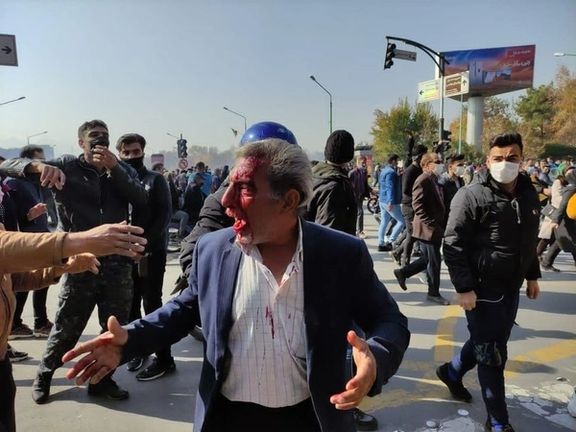
Iran, like many other oil exporters, suffers from the “OIL CURSE”. Iran's oppressive, gender-Apartheid regime sells oil and buys arms, spyware for Telecommunication Technology, surveillance cameras, and more. The nonviolent protest techniques Iranians have been using in the past have been crushed using these new forms of technology that have made it easy for the brutal governments worldwide to spy on their citizens, find the activists, and arrest them. We live in the 1984 world that George Orwell has described in his novel.
At this point, Iranians have no alternative except to prepare for direct action. As Dr. Martin Luther king explained, Nonviolent direct action seeks to create such a crisis and foster such tension that a person with power which has constantly refused to negotiate is forced to confront the issue. Direct action seeks to dramatize the issue that it can no longer be ignored. We can't do this alone. We need help and support. Scholarly research shows that the anti-Apartheid movement in South Africa benefited from sanctions. On balance, the South African experience demonstrates that international sanctions can play a constructive role in domestic political change. Sanctions in South Africa strengthened the anti-apartheid movement and added political and economic incentives for the ruling National Party (NP) to repeal apartheid laws and negotiate with the extra-parliamentary opposition. Numerous strategic, economic, and social sanctions also weakened the regime's ability to maintain apartheid, even undermining its ideological foundations.
We must isolate Iran’s Islamic regime financially, economically, and culturally. We must lobby to put more sanctions on the regime. The clerical regime Iran is the father of the Taliban and the grandfather of ISIS. This gender-Apartheid regime has no legitimacy and does not represent the Iranian people. Let us boycott them in the worlds of sports, arts, cinema, scholarship. Let us boycott their musicians, their artists, and their writers, the same way that the United Nations had appealed to writers, athletes, artists, and musicians to boycott South Africa and urged academic and arts institutions to sever links.
As Moses Mayekiso, General Secretary of the National Union of South Africa's Metalworkers, had said, "Sanctions Hurt but Apartheid Kills!"
Opinions expressed by the author are not necessarily the views of Iran International
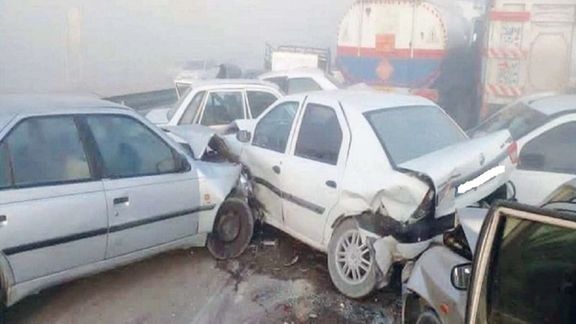
Two massive multiple vehicle collisions in Iran’s southwest last week and the failure of the vehicles' airbags has caused public outrage at domestic automakers.
In comments in the days following the tragic accidents, chief of the Road Police Kamal Hadianfar said the airbags of all of the domestically produced vehicles had failed to operate and strongly criticized domestic automakers for the low quality of their products which he called "carriages of death".
Hadianfar demanded authorities to monitor the quality of domestically produced cars and implementation of safety and quality standards and said automakers sell their sub-standard products to people at the price of foreign-made vehicles.
Others, including Farhad Tamasebi, a member of the parliament's Industries and Mines Committee urged the Judiciary to launch an investigation into the failure of the airbags and the resignation or impeachment of the minister of industries.
The remarks of an official of the Automakers Association, Ahmad Nematbakhsh, about the failure of the airbags angered many including another road police official, Eynollah Jahani. Nematbakhsh claimed the airbags had not opened because the "the collisions' had impacted the rear of the vehicles".
"Sixty cars have collided and the airbags of none has opened because all of them were impacted from the rear?" Jahani asked and said automakers should try to improve the safety and quality of their products instead of trying to justify their shortcomings. He pointed out the failure of airbags and explosion of one of the vehicles involved in the collision were not isolated cases. "We witness similar technical defects and safety failures all the times," he said.
Iran has one of the world's worst traffic safety records with annual road fatalities of around 20,000.
Five were killed and tens were injured in the chain collisions on January 10 on the motorway connecting Behbahan and Ramhormoz in Khuzestan province that involved nearly sixty vehicles. Four of the vehicles burned to ashes in the accident.
Iran's quasi-government-owned automotive industry, the county’s largest after oil and gas, employs 700,000. It was valued in 2020 at $26.4 billion by India-based Modor Intelligence. The sector is in debt for billions of dollars and is a large burden for the government and its banks.
Road Police officials have repeatedly warned about inadequate safety standards of domestic cars. Speaking to the Iranian Students News Agency (ISNA) October 22, deputy chief oftraffic police, Taymour Hosseini, said road accidents were occurring due to inadequate safety standards as Iranian companies struggled to keep up with technology. "Big companies in the world are working on intelligent cars but we have dropped our expectations so much that we are happy with having anti-lock braking systems,” he said.
In a commentary Tuesday, the conservative Asr-e Iran news website said domestic automakers that are never held to account for the very low quality and safety standards of their products for many years have endangered the lives of tens of millions of Iranians with their unsafe products and dubbed the January 10 collisions automakers' "Behbahan Gate".
By protecting automakers' interests in many ways including by eliminating foreign competitors, Asr-e Iran said, the governments has become complicit in "murdering" innocent people. French companies
"It doesn't matter if reformists are in power or hardliners. Despite their political differences, when it comes to automakers, the knees [of both factions] give way and they relent [to automakers' wishes] as if they are under a spell," Asr-e Iran wrote and demanded "immediate shutdown" of the production lines of Saipa and Iran Khodro, Iran's two largest automakers, until the problem with airbags in their products is properly fixed.